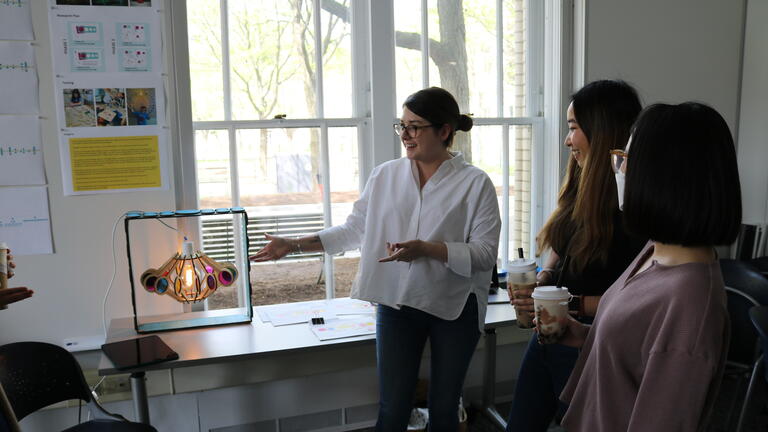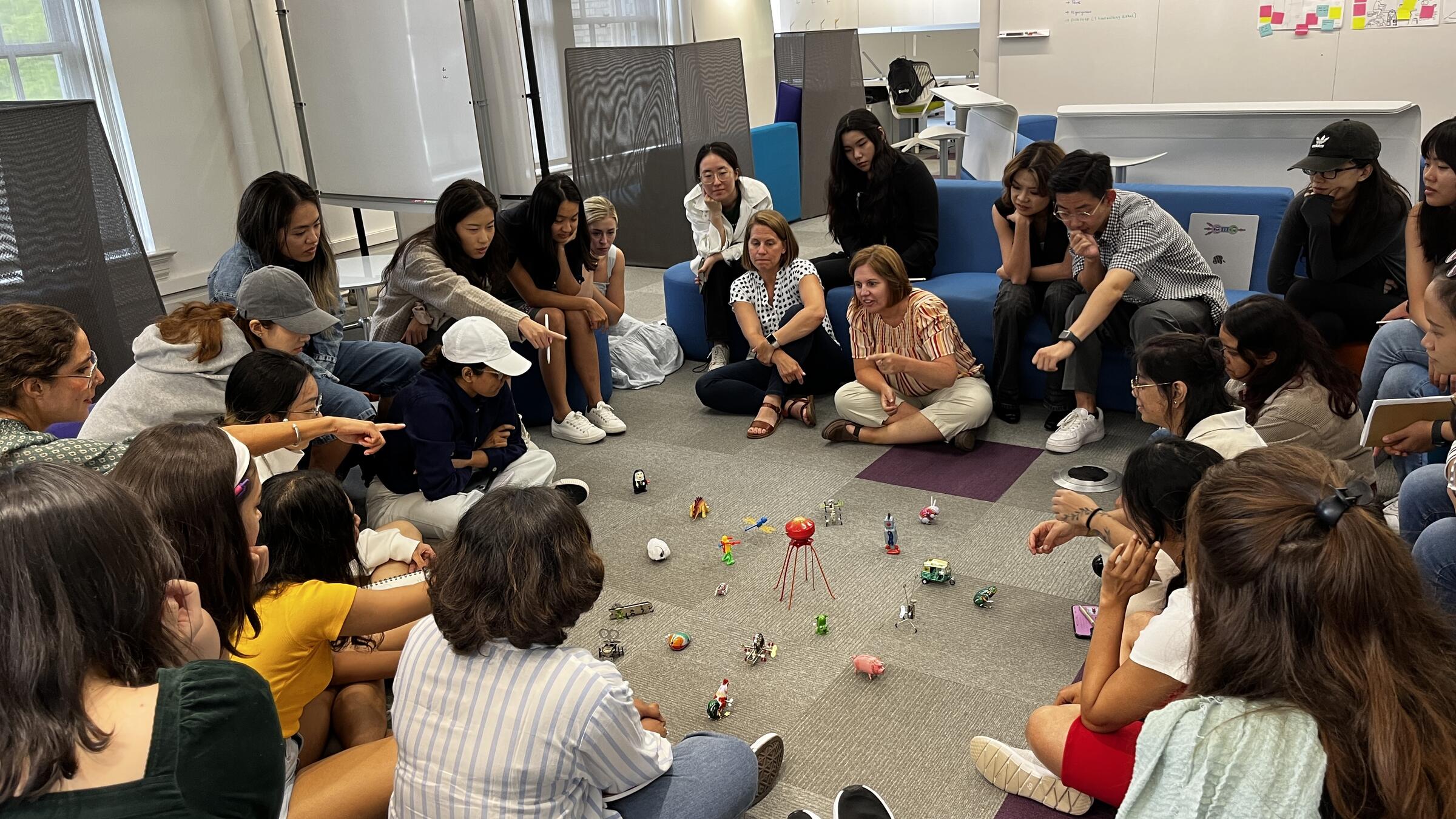
Master of Arts in Design
Our MA program supports those with backgrounds in diverse fields who seek to study design.
The School of Design welcomes students who hold undergraduate degrees in non-design fields and have at least one year of professional experience to apply to our MA program. Whether you’re looking to infuse design into your native discipline or transition to design practice, our MA program will help you evolve professionally and personally. Studies rooted in the culture and practice of design form the basis of our MA. As a student, you’ll develop your abilities to see, think, and create as a designer while broadening and deepening your understanding of the field. You’ll learn timeless principles while gaining exposure to approaches, ideas, and methods at the forefront of design. Throughout it all, you’ll learn from and work with some of the brightest thinkers and most talented practitioners in the field.
The diversity of our MA cohort creates an incredible group of people with whom to learn.
Students in the MA program possess a wide range of professional and academic expertise. Holding undergraduate degrees in disciplines such as journalism, global studies, psychology, economics, engineering, and arts management, they bring to the program unique experiences, perspectives, and cultural insights from around the world that enrich learning for all students.

Our rigorous curriculum balances structure and autonomy.
Spanning two semesters over one year, the MA program introduces you to foundational design principles, approaches, theories, and tools that are essential to designing for interactions. Each semester comprises thoughtfully aligned seminars, studios, and labs that equip you with important knowledge and skills to effectively and ethically practice design. While designers typically work in service of others in response to specific prompts, courses in our MA program provide ample autonomy to direct your individual work within project parameters. We take this approach because we recognize the importance of your individual interests and your desire to chart your personal path and define your design “voice”. CMU is recognized worldwide for its focus on research, and The School of Design nurtures that culture. As a student in our MA program, you’ll have opportunities to pursue innovative, multidisciplinary research opportunities with faculty. In addition, if time permits, you may also take courses across campus to broaden and deepen your education.
Our MA equips you with a solid foundation in design that enables you to confidently take your next steps.
Some students find that our two-semester MA provides a sufficient introduction to design that augments their skillsets and their career in their native practice or informs their studies in an adjacent field. For others, the MA may function as a first step toward deeper studies in design that will ultimately lead to a rewarding career in the field. Students may continue their education in our Masters of Professional Studies (MPS) in Design for Interactions, Masters of Design (MDes) in Design for Interactions, or PhD in Transition Design program. The MPS is a two-semester program that is only available to our MA students. Courses required in the first year of the MDes program, except for Thesis Prep, comprise the MPS curriculum. The MPS offers you a practical and attainable means of developing a strong, forward-thinking design practice. You may also choose to pursue a course of study in areas such as business, human-computer interaction, or public policyor return to work in your previous field with the advantage of design skills and perspectives. No matter what direction you choose when charting your path, our MA will provide you with a strong design education that will inform your next steps and establish a positive trajectory for achieving your professional goals.
Master of Arts in Design (MA) Curriculum
Fall Semester
Develop foundational visual and communication design skills. Cultivate an understanding of design thinking, methods, and processes.
-
Discover the way expert designers think and make. Investigate key concepts in historical and contemporary design practice, and learn to articulate the value of design-based innovation.
-
Practice communication design by giving visual form and meaning to complex information, concepts, processes, and systems.
-
Learn to use common design software and basic coding in support of your studio projects.
-
Learn and practice a variety of design skills and approaches through a focused series of hands-on activities.
-
Learn about faculty research.
Spring Semester
Expand your visual and prototyping skills, and deepen your understanding of interaction design. Gain exposure to the broader role and impact of design in the world.
-
Choose to either study Transition Design, Social Innovation or Design for Service.
-
Establish the basic skills, perspectives, and working vocabulary of an interaction designer. Apply what you learn to projects that span all phases of the design process.
-
Develop physical and digital prototyping skills to shape product form and behaviors.
-
Take a design elective or a course outside of design to complement your skills and knowledge. We recommend courses in policy, business, service or social innovation, interaction or communication design, or professional writing.
We invite you to connect with us and learn more about the School of Design and our MA program.
Check out examples of students’ work, join us for an online visitors session, and review other areas of our site, such as the Learning Outcomes for our MA and MPS programs, Frequently Asked Questions and the Application Process. We also invite you to visit Carnegie Mellon and coordinate a tour of the School of Design while you’re here. Contact us to discuss any questions that arise. We look forward to meeting you!